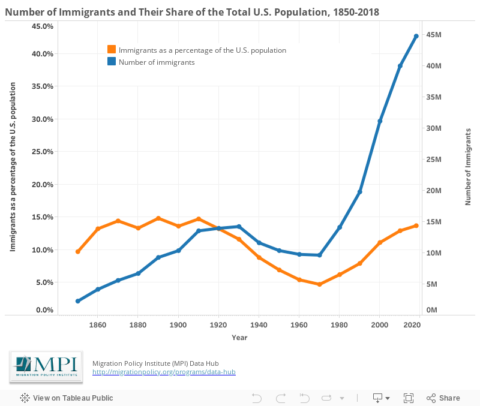Tasting History with Max Miller
Published Mar 5, 2024A complete Ellis Island meal: Tapioca Pudding, coffee, Beef and Barley Soup, and white bread.
City/Region: United States of America
Time Period: 1887The food on Ellis Island could be pretty good or pretty terrible depending on when you were there. The quality went up and down a lot, but the food was always free to those who were staying on the island. A menu for the midday meal on Tuesday, January 20, 1920 lists English Beef Soup with Barley, Lamb Stew with Vegetables, Bread and butter substitute, Tapioca Pudding, Coffee. This recipe doesn’t use a lot of meat, but the marrow melts into the broth and there are plenty of vegetables and flavor, making for a hearty soup.
Beef Soup
Select a small shin of beef of moderate size, crack the bone in small pieces, wash and place it in a kettle to boil, with five or six quarts of cold water. Let it boil about two hours, or until it begins to get tender, then season it with tablespoonful of salt, and a teaspoonful of pepper; boil it one hour longer, then add to it one carrot, two turnips, two tablespoonfuls of rice or pearl barley, one head of celery and a teaspoonful of summer savory powdered fine; the vegetables to be minced up in small pieces like dice. After these ingredients have boiled a quarter of an hour, put in two potatoes cut up in small pieces; let it boil half an hour longer, take the meat from the soup, and if intended to be served with it, take out the bones and lay it closely and neatly on a dish, and garnish with sprigs of parsley.
Serve made mustard and catsup with it. It is very nice pressed and eaten cold with mustard and vinegar, or catsup. Four hours are required for making this soup. Should any remain over the first day, it may be heated, with the addition of a little boiling water, and served again. Some fancy a glass of brown sherry added just before being served. Serve very hot.
— The White House Cook Book, 1887.
June 16, 2024
What People Ate on Ellis Island
June 13, 2024
June 12, 2024
“Treason never prospers” … except in Canadian politics, apparently
Justin Trudeau and his unindicted co-conspirators in Canada’s federal parliament don’t think the names of Members of Parliament who have been acting as enablers or actual agents of foreign powers — that is, possible traitors — should be made public. The National Security and Intelligence Committee of Parliamentarians (NSICOP) Even the least cynical may be forgiven for thinking that this isn’t what a mature country would do in similar circumstances:

The cover of the NSICOP special report on foreign interference (PDF here)
… MPs have an obligation to protect the institution that is the House of Commons. Every MP is required as a condition of taking their seats, to swear the following oath: “I, [name], do swear that I will be faithful and bear true allegiance to His Majesty King Charles the Third, King of Canada, his heirs and successors. So help me God.”
The violation of that oath, or the suspected violation of that oath, is absolutely arguably contempt against the House of Commons. We don’t have a ton of precedent for that, because MPs who have been alleged to have collaborated, even unwittingly, with a foreign power in the past usually have the good sense to resign. But MPs should absolutely be allowed to pass judgment on the actions of their colleagues, with the express intent of expelling from the House any members who have transgressed against their oath to King and Country. This isn’t just their duty, it is a duty that they are uniquely positioned and obligated to perform. Until we know exactly which parliamentarians we’re talking about, a spectre hangs over all 400-plus of them. That very much compromises the public’s opinion of Parliament and has a demonstrable impact on their ability to do their jobs as parliamentarians.
Once upon a time, children, ministers of the Crown would offer their resignations for mistakes made by members of the civil service in the ministry for which he or she held responsibility, never mind mistakes of their own. In modern times, of course, it’s rare to find a minister resigning voluntarily until the RCMP is literally knocking on the door, and sometimes not even then.
Second, we are a large and multicultural country. MPs are expected to represent members of any diaspora community which may exist in their constituency. If you’re a Tibetan or Uyghur activist, how can you be represented by an MP who’s demonstrated a willingness to collaborate with the government of the People’s Republic of China? If you’re an Iranian democracy and reform activist, how can you be represented by an MP who has close ties to Iran’s diplomatic and intelligence operation?
The answer, of course, is that you can’t be. The government has a greater responsibility to the democratic rights of those Canadians than it does to protecting the identity of any single unscrupulous or otherwise compromised parliamentarian. With every day that passes, Ottawa looks more like it has an interest in partisan butt-covering than it does in maintaining the long-term faith that democracy requires for our institutions to survive.
A good Member of Parliament recognizes the responsibility to the constituents — whether they voted for that particular MP or not — and would keep that responsibility as faithfully as possible. On that reckoning, we have fewer good MPs than we should have … and if the intelligence turns out to be fully supported upon full investigation, there should be a lot of open seats to run by-elections for (even if no formal charges of treason are ever laid).
Finally, I accept that intelligence is not evidence. I also accept, as noted in the Globe by Philippe Lagassé and Stephanie Carvin, that we must be cautious to not compromise intelligence sources and methods, or compromise ongoing investigations. Parliamentarians should not replace the criminal justice system or undercut our defence, but they what they are capable of doing, and indeed are required to do because no one else can do it for them, is broadly defining what the acceptable behaviour for parliamentarians should be. If an MP or a senator has engaged with a foreign power’s diplomatic or security services and they do not believe they have crossed the line for what we deem to be acceptable behaviour, they will be more than welcome to go on Power and Politics, or take to social media, or show up at what I’m sure will be many committee hearings, and make their case.
It is not a hardship to ask them do so. They are not being hard done by. The question here is not whether what they’ve done is criminal. It wasn’t criminal when Bev Oda billed the taxpayers for her juice. It wasn’t criminal when Bill Morneau forgot to leave a cabinet meeting where a decision was made that was a perceived conflict of interest. But both of those parliamentarians were forced to accept that their behaviour had failed the people they were sworn to represent. They resigned.
And the idea that orange juice crosses the line, but aiding a foreign intelligence service — even “semi-wittingly” — does not, will fail to pass the smell test with a very large number of Canadians. And that is entirely correct. The public is well ahead of the politicians on understanding this.
Public trust in politicians has been ebbing for quite some time and was fading even before the pandemic exposed so many of them as would-be dictators, poltroons, and idiots. There is no deep reservoir of respect for politicians that can be drawn on at this point. Swift action is the only thing that Parliament can do and by “swift”, I don’t mean setting up a Royal Commission with a multi-year remit to bury the issue until after the next federal election.
June 10, 2024
South Africa’s “Rainbow Nation” falters
Niccolo Soldo’s weekly roundup included a lengthy section on the recent election results in South Africa and what they might mean for the nation’s short- and medium-term stability:
Being a teen, the issue of South African Apartheid didn’t really fit all that well within the overarching Cold War paradigm. Unlike most other global issues, this one didn’t break down cleanly between the “freedom-loving West” and the “dictatorial, oppressive communist bloc”, as the push to dismantle the regime came from western liberals who were in agreement with the reds.
This slight bit of complexity did not faze most people, as Apartheid was seen as a relic of an older world, one to be consigned to the proverbial dustbin of history. It’s elimination did fit well enough into the Post-Berlin Wall world, one in which freedom and democracy were to reign supreme. This was more than enough reason for almost all people to cheer the release of Nelson Mandela and applaud South Africa’s embrace of western liberal democracy.
In the early 1990s, men once again dared to flirt with utopian ideas, and South Africa’s “Rainbow Nation” was to be its centrepiece: out with authoritarianism, racism, ethnocentrism, etc., and in with multiracialism, multiethnicity, democracy and individual liberty. We could all leave the past where it belonged (in the past) and live in peace and harmony, as democracy would defend it, secure it, and preserve it. South Africa would lead the way, and would in fact teach us westerners how it is to be done.
Oddly enough, South Africa quickly fell off of the radar of mainstream media in the West when it failed to live up to these lofty goals. Rather than living up to the hype of being the “Rainbow Nation”, it instead was quickly mired in the politics of corruption and race, showing itself to be all too human, just like the rest of us. South Africa had failed to immediately resolve its inherent internal tensions, whether they be racial, economic, ethnic, or ideological, and by extension it had failed to deliver its promise to western liberals. “Out of sight, out of mind” became the best practice, replacing the utopianism of the first half of the 1990s.
Granted, a lot of grace was given to South Africa by western media so long as Nelson Mandela remained in office (and even after that), but the failures were plainly evident to see: an explosion in crime and in corruption were its most obvious characteristics, ones that could not be brushed under the carpet. The African National Congress (ANC), the party that would deliver the promise of the Rainbow Nation, was instead shown to be little more than a powerful engine of corruption and patronage. Luckily for the ANC, it was fueled in large part by the legacy of Mandela and the goodwill that he had accumulated over the years while he sat in prison.
The post-Mandela era has not been kind to the ANC (nor to South Africa as a whole), as the party could no longer hide behind his fading legacy, and could no longer cash in on the goodwill that came from it. It could “put up”, and would it not “shut up”. The ANC over time became a lumbering beast, too big to slay, but too slow to destroy its opposition when compared to its nimble youth.
What has the party delivered in its three decades of power? It did help dismantle Apartheid, but it did not deliver economic prosperity and opportunity to all. Instead, it simply swapped out elites where it could, preferring to keep the new ones in house. An inability to tame crime and to keep the national power grid running has turned the country into a bit of a joke, especially when it is lumped into the BRICS group alongside Brazil, Russia, India, and China. Despite its abundance of natural wealth, South Africa has been economically mismanaged.
South Africa is an important country to watch for the simple reason that there is so much tinder lying around, ready to be set ablaze. Luckily for South Africans, dire projections of widespread civil strife have not come to pass. Unluckily for South Africans, their national trajectory is headed in the wrong direction. Last week’s national elections saw the ANC lose their parliamentary majority for the first time ever, and the only way to read the results is to conclude that no matter how one may feel about this very corrupt party, it is an ominous sign.
Elite contempt for democracy is fuelling anti-immigration “far right” sentiment in the west
Even for people who are generally happy with robust immigration, the numbers being recorded (or, more likely, under-recorded) in Canada, the United States and Europe are far too high to pretend that the new arrivals will quickly integrate into their new countries, and they are generally not being encouraged to do so anyway. Complaints to the people who have enabled these massive inflows — at best — are waved off or ignored, but often are seized upon as examples of hateful far-right xenophobia to be punished and suppressed:
Not so long ago, as many of us reeled from the political earthquakes of Brexit and Trump, it seemed sensible for responsible mainstream political parties to adopt tighter immigration control to keep the populist right at bay. Mass migration in Europe had led to a far-right resurgence; in the US and UK, Trump and the Johnson-era Tories seemed to grasp this and moved to co-opt the anti-immigrant fervor. Democracy was working to accommodate a shift in the public mood.
Or so it seemed. Nearly a decade later, something else has happened: an immigration explosion. In response to a volatile public mood, Western elites actually intensified their policy of importing millions of people from the developing world to replace their insufficiently diverse and declining domestic populations.
The recent figures from the US, UK and Canada are mind-blowing. The graphs all look like a hockey stick, with a massive spike in the last three years alone. Under Trump, the average number of illegal crossings a year was around 500,000; under Biden, that has quadrupled to two million a year — from a much more diverse group, from Africa, China and India. To add insult to injury, Biden has also all but shut down immigration enforcement in the interior; and abused his parole power to usher in nearly 1.3 million illegal migrants in 2023 alone. The number of undetained illegal migrants living in the US has thereby ballooned under Biden: from 3.7 million in 2021 to 6.2 million in 2023, according to ICE. If a fraction of those millions turns up for asylum hearings, I’ll be gob-smacked.
Canada has seen something similar. For much of the 21st century, Canada had around 200,000 to 300,000 immigrants a year; but in the last two years, this has nearly doubled. In Britain, the same story. In 2015, the year before Brexit, net migration (the numbers of people immigrating minus the number emigrating) was 329,000; in the last two years, it has more than doubled to over 700,000. And whereas most immigration before Brexit was from the EU, today, immigrants from the developing world outnumber European immigrants by almost 10 to 1. For those Brits who voted for Brexit to lower the number of foreigners in the country, it’s been surreal.
If you want to understand why Biden keeps trailing in the swing states, why the Tories are about to be wiped out in a historic collapse, and why Trudeau is at all-time low in approval at 28 percent, this seems to me to be key. As the public tried to express a desire to slow down the pace of demographic change, elites in London, Ottawa, and Washington chose to massively accelerate it. It’s as if they saw the rise in the popularity of the far right and said to themselves: well now, how can we really get it to take off?
This week, CNN ran a poll on Biden and immigration. Here’s what they found: in May 2020, only one percent of Americans put immigration as their top concern — in 15th place among issues; in May 2024, 18 percent put it first. In 2020, Biden edged Trump by one percent on who was best to tackle the border crisis; four years later, Trump is ahead on the issue by 27 points. As a coup de grâce, CNN also found that foreign-born Americans preferred Trump to Biden on immigration by 47 to 44 percent. Turns out that this immigrant’s worries are widely shared by my fellow new Americans.
Biden, of course, is now desperately scrambling to salvage something from this disaster. This week, he contradicted himself by saying he has the unilateral capacity as president to shut down the border, and attempted to blame the GOP for the problem. Yes, the GOP was unhelpful and cynically political earlier this year — but that won’t muddy the waters for most voters who have been conscious for the past three years. But I am grateful nonetheless to hear the president echo what the Dish has been saying for years now, and for which I was routinely called a racist:
To protect America as a land that welcomes immigrants, we must first secure the border and secure it now. The simple truth is there is a worldwide migrant crisis, and if the United States doesn’t secure our border, there is no limit to the number of people who may try to come here, because there is no better place on the planet than the United States of America.
Now that didn’t hurt, did it? But why did he keep telling us there was no crisis for the last three and a half years? And why would anyone trust a re-elected Biden to enact this if he had a Congressional majority? I sure don’t.
Even under Biden’s “crackdown”, he is still prepared to admit at least 1.75 million illegal immigrants a year! Last week, Chuck Schumer declared that the ultimate goal was to legalize every single illegal immigrant — because Americans are not having enough children. Without open borders, of course, our economy wouldn’t look so good: in the last year, according to the Bureau of Labor Statistics, foreign-born workers gained 600,000 new jobs, while native-born Americans lost 300,000. But don’t you dare mention the “Great Replacement Theory“!
The FDA has a jaundiced view of psychotherapy involving the use of MDMA (aka “Ecstasy”)
Colby Cosh indulges in a minor “I told you so” after the FDA’s expert panel recommended against the agency permitting any medical use of MDMA, despite some experiments indicating it does have therapeutic value:

Ball-and-stick model of the 3,4-methylenedioxy-methamphetamine molecule, also known as MDMA, or ecstasy, a well-known psychoactive drug. Based on the crystal structure of MDMA hydrochloride, as determined by X-ray diffraction.
Color code: Carbon, C: black, Hydrogen, H: white, Oxygen, O: red, Nitrogen, N: blue.
Image by Jynto via Wikimedia Commons.
Hopes for research into therapeutic uses of psychedelic drugs received a setback last week, one that your correspondent saw tripping (geddit?) up the road in advance. An expert panel published its official advice to the United States Food and Drug Administration (FDA) on permitting medical use of MDMA, the synthetic nightclub enhancer that we’re afraid the kids probably still aren’t calling “ecstasy” or “molly”.
There is long-recognized potential for MDMA to be combined with classical psychotherapy in treating emotional disorders, notably post-traumatic stress (PTSD), and now there are some small, limited studies showing evidence of positive effects.
But the FDA’s scientists weren’t very impressed with this evidence, and they voted almost unanimously against creating a therapeutic exception to the illegality of ecstasy, which the U.S. Controlled Substances Act classifies as a “Schedule 1” drug, right next to heroin. The panel’s advice isn’t binding on the agency, which is crawling in somewhat good faith toward recognizing the understudied medical potential of psychedelics. But the vote emphasizes the inherent problems that drugs face, once they are defined in law as “recreational”, in winning over skeptical scientists.
Reason magazine’s great drug-war correspondent Jacob Sullum has a thorough discussion of the issues. The existing research, despite some impressive headline results, has garden-variety issues with dropout rates, follow-ups and occasional researcher shenanigans. But the big problem, which defies easy technical solution, is with scientific blinding of the research subjects.
Scientific trials of the modern kind are predicated upon separating illusory placebo effects from genuine treatment effects. Researchers expect that a high-quality study will have a control group that receives sham treatment or none at all, and good practice requires that experimenters and their guinea pigs are both blind to who is in what group.
News flash: most people can tell whether they’ve been really given a psychedelic drug. Indeed, most doctors can tell whether they’ve given a patient a genuine psychedelic drug, and how much of it. Many placebo-controlled trials on psychoactive drugs, perhaps most of them, thus suffer from an alleged problem of broken blinding. (Have a glance, for example, at Table 2 in this review of blinding procedures in psychedelic studies.)
June 8, 2024
El Loco, Argentina’s “skunk at the garden party”
In The Free Press, Bari Weiss talks to Argentinian President Javier Milei (through a translator) about his first six months in office:
At the start of the twentieth century, Argentina was one of the wealthiest countries in the world. The capital, Buenos Aires, was known as “the Paris of South America”.
A lot can happen in a hundred years.
Argentina today is in grave crisis. It has defaulted on its sovereign debt three times since 2001, and a few months ago, it faced an annualized inflation rate of over 200 percent — one of the highest in the world.
Why? What happened?
Argentina’s new president says it’s simple: socialism.
When Javier Milei took office in December 2023, he became the world’s first libertarian head of state. During his campaign, he made his views clear: “Let it all blow up, let the economy blow up, and take this entire garbage political caste down with it”. In case the chainsaw he wielded on the campaign trail left any question about his intentions, during his victory speech last year, he reiterated his vision: “Argentina’s situation is critical. The changes our country needs are drastic. There is no room for gradualism, no room for lukewarm measures.”
There is nothing gradual about what Milei is now doing.
He’s eliminating government ministries and services, cutting regulations, privatizing state-run companies, and purposely creating a recession to curb the out-of-control inflation.
This is why people voted for him: change. They saw someone who could shake things up in a way that could turn out to be lifesaving for the country — even if it meant short-term economic pain.
But will it work? Not all Argentines think so. And not everyone is willing or able to wait for things to improve. In April, with food prices rising and poverty up 10 percent, tens of thousands of Argentines took to the streets to protest Milei’s aggressive austerity measures.
Milei is a strange and idiosyncratic creature. There are the obvious things: He says he doesn’t comb his hair (and he doesn’t appear to). He has four cloned mastiffs that he refers to as his “four-legged children“, and which he’s named for his favorite free-market economists. He was raised Catholic, but studies the Torah. (He even quoted a Midrash during our conversation.) He used to play in a Rolling Stones cover band. And he has been known since grade school in the ’80s as El Loco, on account of his animated outbursts, which would later bring him stardom as a TV, radio, and social media celebrity.
But that’s all the superficial stuff. What really makes Milei unusual is that he is the ultimate skunk at the garden party. In a world of liberals and conservatives, he doesn’t represent either side. He is ultra-liberal on economics, but right-wing and populist on rhetoric. He is anti-abortion, but favors the legalization of prostitution. He wants to deregulate the gun market and legalize the organ trade.
He calls himself an anarcho-capitalist, which basically means he believes the state, as he told me, is “a violent organization that lives from a coercive source which is taxes”. Essentially, he’s a head of state who really doesn’t believe in states. Or at least, not theoretically.
In January, Milei showed up at Davos, the Alpine mountain resort that hosts the annual World Economic Forum. This is traditionally a place where people who all think the same way go to drink champagne and tell each other how smart they are. Milei arrived, flying commercial, and blew up that comfortable consensus: “Today, I’m here to tell you that the Western world is in danger. And it is in danger because those who are supposed to have defended the values of the West are co-opted by a vision of the world that inexorably leads to socialism and thereby to poverty.”
All of this is why I was eager to talk to Milei and put some of these questions to him: How long will it take for things to improve in Argentina? Why does he believe the Western world is in danger? What’s the difference between social justice and socialism? Can the free market really solve all of our civic problems? And how does he feel about being the skunk at the garden party? (Spoiler: He loves it.)
And despite having called journalists “extortionists”, “liars”, “imbeciles”, “freeloaders”, and “donkeys”, for some reason, he agreed to sit down with me.
June 7, 2024
Since 2015, the Trudeau Liberals have done a fantastic job of suppressing the Canadian economy
If Canadians elected Justin Trudeau and the Liberal Party to make major changes from what had gone on under Stephen Harper’s Conservatives, then they got their wish in so many different ways, but especially economically:
Reports of Canada’s dismal economic outcomes seem never to end. Why should they? For years Canadians have had the same federal government delivering the same deleterious economic policies and the same expansion in regulatory initiatives and spending that have invariably depressed economies and reduced standards of living whenever and wherever they are imposed. Therefore, until the federal government or its policies change, we should not expect the miserable results to materially improve.
The latest negative report is the release of Canada’s 2024-Q1 GDP numbers on Friday, which again showed sluggish growth relative to population, resulting in yet another quarterly decline in real GDP per capita. Relative to 2015-Q3, the last full quarter before the Trudeau government took office, cumulative real GDP per capita is up only about 0.7 per cent. A recent RBC Economics analysis showed from around 1991 to 2015, cumulative real GDP per capita growth in Canada approximately tracked with the U.S., but not since Justin Trudeau took office. Compared to 0.7 per cent growth in Canada from 2015-Q3 to 2024-Q1, real GDP per capita is up 15.7 per cent in the U.S. in the same time period.
Where the 0.7 per cent comes from matters, too. In real per capita terms, some components of GDP — mainly government — expanded while others contracted. Alarmingly, business investment, which drives productivity and standards of living, is down 13.9 per cent. This includes real per capita reductions of 15.2 per cent in residential structures, 18.4 per cent in machinery and equipment, and 19.3 per cent in non-residential structures, with an increase in intellectual property investment not nearly enough to offset the reductions in other categories.
To understand why business investment and economic performance in Canada are so poor under the Trudeau government, let us consider the following representative example of its economic strategy.
The government believes many families struggle with the cost of caring for young children, which is a legitimate concern. A reasonable solution, which the Harper government implemented in 2006, is to send money to families with young children and let parents buy for their children what they need. After the Liberals expanded that program, they could have left it at that, but what have they done instead? The government initiated a national takeover of child care, effectively expropriating child care entrepreneurs’ businesses by flooding their sector with public money and then controlling private companies’ revenues and operations. The result is child care entrepreneurs’ investments have been wiped out or severely reduced, control of their business operations have been wrestled away by government, and they are unable to properly serve their customers (the families), as evidenced by the drastic reduction in parental options and widespread shortages.
June 6, 2024
QotD: Herbert Hoover as Woodrow Wilson’s “Food Dictator”
In 1917, America enters World War I. Hoover […] returns to the US a war hero. The New York Times proclaims Hoover’s CRB work “the greatest American achievement of the last two years”. There is talk that he should run for President. Instead, he goes to Washington and tells President Woodrow Wilson he is at his service.
Wilson is working on the greatest mobilization in American history. He realizes one of the US’ most important roles will be breadbasket for the Allied Powers, and names Hoover “food commissioner”, in charge of ensuring that there is enough food to support the troops, the home front, and the other Allies. His powers are absurdly vast – he can do anything at all related to the nation’s food supply, from fixing prices to confiscating shipments from telling families what to eat. The press affectionately dubs him “Food Dictator” (I assume today they would use “Food Czar”, but this is 1917 and it is Too Soon).
Hoover displays the same manic energy he showed in Belgium. His public relations blitz telling families to save food is so successful that the word “Hooverize” enters the language, meaning to ration or consume efficiently. But it turns out none of this is necessary. Hoover improves food production and distribution efficiency so much that no rationing is needed, America has lots of food to export to Europe, and his rationing agency makes an eight-digit profit selling all the extra food it has.
By 1918, Europe is in ruins. The warring powers have declared an Armistice, but their people are starving, and winter is coming on fast. Also, Herbert Hoover has so much food that he has to swim through amber waves of grain to get to work every morning. Mountains of uneaten pork bellies are starting to blot out the sky. Maybe one of these problems can solve the other? President Wilson dispatches Hoover to Europe as “special representative for relief and economic rehabilitation”. Hoover rises to the challenge:
Hoover accepted the assignment with the usual claim that he had no interest in the job, simultaneously seeking for himself the broadest possible mandate and absolute control. The broad mandate, he said, was essential, because he could not hope to deliver food without refurnishing Europe’s broken finance, trade, communications, and transportation systems …
Hoover had a hundred ships filled with food bound for neutral and newly liberated parts of the Continent before the peace conferences were even underway. He formalized his power in January 1919 by drafting for Wilson a post facto executive order authorizing the creation of the American Relief Administration (ARA), with Hoover as its executive director, authorized to feed Europe by practically any means he deemed necessary. He addressed the order to himself and passed it to the president for his signature …
The actual delivery of relief was ingeniously improvised. Only Hoover, with his keen grasp of the mechanics of civilization, could have made the logistics of rehabilitating a war-ravaged continent look easy. He arranged to extend the tours of thousands of US Army officers already on the scene and deployed them as ARA agents in 32 different countries. Finding Europe’s telegraph and telephone services a shambles, he used US Navy vessels and Army Signal Corps employees to devise the best-functioning and most secure wireless system on the continent. Needing transportation, Hoover took charge of ports and canals and rebuilt railroads in Central and Eastern Europe. The ARA was for a time the only agency that could reliably arrange shipping between nations …
The New York Times said it was only apparent in retrospect how much power Hoover wielded during the peace talks. “He has been the nearest approach Europe has had to a dictator since Napoleon.”
Once again, Hoover faces not only the inherent challenge of feeding millions, but opposition from the national governments he is trying to serve. Britain and France plan to let Germany starve, hoping this will decrease its bargaining power at Versailles. They ban Hoover from transporting any food to the defeated Central Powers. Hoover, “in a series of transactions so byzantine it was impossible for outsiders to see exactly what he was up to”, causes some kind of absurd logistics chain that results in 42% of the food getting to Germany in untraceable ways.
He is less able to stop the European powers’ controlled implosion at Versailles. He believes 100% in Woodrow Wilson’s vision of a fair peace treaty with no reparations for Germany and a League Of Nations powerful enough to prevent any future wars. But Wilson and Hoover famously fail. Hoover predicts a second World War in five years (later he lowers his estimate to “thirty days”), but takes comfort in what he has been able to accomplish thus far.
He returns to the US as some sort of super-double-war-hero. He is credited with saving tens of millions of lives, keeping Europe from fraying apart, and preventing the spread of Communism. He is not just a saint but a magician, accomplishing feats of logistics that everyone believed impossible. John Maynard Keynes:
Never was a nobler work of disinterested goodwill carried through with more tenacy and sincerity and skill, and with less thanks either asked or given. The ungrateful Governments of Europe owe much more to the statesmanship and insight of Mr. Hoover and his band of American workers than they have yet appreciated or will ever acknowledge. It was their efforts … often acting in the teeth of European obstruction, which not only saved an immense amount of human suffering, but averted a widespread breakdown of the European system.
Scott Alexander, “Book Review: Hoover”, Slate Star Codex, 2020-03-17.
June 4, 2024
QotD: “Let the market handle it”
The argument is quite common. It’s also wrong. Its error is that it incorrectly identifies the set of choices for dealing with problems (and with “problems”).
Rodrik’s argument appears to be the height of reasonableness. “It is dogmatic and dangerous,” the argument’s champions rightly note, “to assume that one solution or one approach is the answer to every problem. Some problems call for the use of screwdrivers, others call for the use of hammers. Only a benighted fool insists on using a screwdriver to hammer in nails and on using a hammer to insert screws. The wise, non-ideological, enlightened, open-minded, reasonable, and scientifically aware person sometimes uses a screwdriver and other times uses a hammer. What could be more reasonable?!”
The error in this formulation is that markets are many tools. Markets are a toolkit with far more tools in it than government has access to. While government has only a few tools – mostly hammers (some sledge), saws, and clamps – the market is filled with many, almost countless, tools. And the market’s tools are much more varied, nuanced, specialized, and creative than are the government’s simple set of tools.
Put differently, to say “Let the market handle it” is just a shorthand way of saying “Let whoever is most willing, most able, most experienced, most knowledgeable, and best equipped be free to try his or her hand at dealing with each specific problem.” And to say “Let the market always handle it” is not – contrary to what Rodrik’s argument suggests – to propose a single, simple fix for all problems; it is to propose that the field be left open for as many fixes as are feasible to be tried. To say “Let the market always handle it” is to warn that using government as a fix crowds out – prevents – experimentation with many other possible fixes.
In short, the choice is not between only two alternative possible fixes: the market or the government. Instead, the choice is between a gigantically large and varied set of possible fixes (the market, with its many detailed specialized carpenters and master builders) or a tiny set featuring one possible fix (the government, with its hammering, sawing, and clamping officials, none of whom – unlike the case with market participants – can be reasonably presumed to know enough of the finer details of any of the problems that they are called upon to “fix”).
The truly reasonable person – the one who understands the benefits of having access to as many “solutions” to problems as possible – supports the market because he or she knows that to turn to government solutions is to drastically reduce the number of “solutions” that will be tried.
Don Boudreaux, “Very Bad Framing, or In Defense of ‘Let the Market Handle It'”, Café Hayek, 2016-08-12.
June 3, 2024
QotD: Economic feedback
Well, now I think about it, most feedback is annoying.
Economics is full of it — as are other economic systems — and humans find it so annoying they have devised various means of shutting it down, and then become puzzled and do crazy stuff when the system goes out of control.
Take price controls. They deliberately shut down feedback. The idea is “people need to eat and the essentials should be cheap”. We went tons of rounds on this in the seventies in Portugal. It was FUN — not — and responsible for empty grocery shelves and problems getting the essentials. Because when cooking oil was dirt cheap by price control, everyone who had ridden this pony before (with bread, with toilet paper, with …) would buy everything in the grocery shelves. Meanwhile, because it was impossible for merchants to make a profit on the thing, they didn’t stock it. Which was okay, because the factories that made it couldn’t afford to at that price, so they stopped. And all the way down the line.
This is because what the idiot politicians were shutting down was the feedback. Prices are many things — and sometimes annoying when you really want a good pair of noise-cancelling headphones but your bank account is crying, to use a totally random example — but MOSTLY? They’re information. They’re feedback.
Because, yes, people work for profit, and profit — things that Warren and Sanders will never get — is not dirty, it’s what people live on, when prices go up — meaning there’s more demand than supply — people go “hey, you can make a profit in this” and start making more, until the supply and demand match, and you can’t make as much money, so people wander off to do other stuff.
You shut down the signal, and things go insane. You keep it shut down long enough while handing down lists of things that the government wants you to make, and vast famines sweep the land but you have a surplus of size 35 shoes for the left foot only. Because the directive handed the factory made that the easiest thing to do.
But it is not just in economics (though eh, everything is a branch of economics, as my reading in my 30s informed me. Which means that’s probably when I started going insane) that humans love shutting down feedback.
The truth is we don’t like reality very much, and are more or less perpetually at war with it.
We have this image of how things should be, and because we imagine it so clearly we think it’s a moral imperative.
Sarah Hoyt, “Shutting Off Feedback or How We Got Into This Fine Mess”, According to Hoyt, 2019-11-04.
June 1, 2024
From Sic semper tyrannis to the “Non-Aggression Principle”
On Substack Notes, kulak points out that the beliefs that led to the American colonists taking up arms against King George’s government don’t expire:

A statue idealizing the individual minutemen who would compose the militia of the United States.
Postcard image of French’s Concord Minuteman statue via Wikimedia Commons.
One of the things that drives me nuts about people who claim to subscribe to modern libertarianism (as opposed to the American Revolutionary ideology) is the claim to be “peaceful” and “antiwar”
Libertarianism isn’t antiwar. The American founding values aren’t antiwar. They never have been. It is a permanent declaration of war.
Live Free or Die
Sic Semper Tyrannis.
“Thus always to tyrants”
When does “always” end? NEVER
If those values succeed then 10,000 years from after your descendants have forgotten the name of America itself, they will be killing tyrants and carving their hearts from their chest.
Libertarianism is not “peaceful” it is a declaration that no peace shall ever exist again. That a free people will never have peace with any who’d seek to rule them. Eternal civil war against all would-be tyrants from the pettiest to the most grandiose.
The “non-aggression principle” does not state that the libertarian my never aggress against another … It states only that he may not aggress FIRST, afterwards any and all aggression, even the most disproportionate, is permitted.
“Taxation is Theft” is the claim that a tax collector or government agent paid out of taxes has the same moral status as burglar/home invader caught in your child’s bedroom. It is the claim that that those who benefit and enable the welfare programs paid out of your taxes have the same moral protection from your wrath should you gain the upper hand as a mugger actively threatening you with a gun lest you hand over your wallet.
“Taxation is Theft” necessarily justifies just as revolutionary and total a upset in the political order as “Property is Theft” did … because theft inherently is a violation of your extended person to be resisted without restriction. And just as the Communist claim of “property is theft” justified the most total and brutal wars in human history to destroy the social order (and social classes) who made “property” possible. Libertarianism and “Taxation is Theft” must necessarily justify just as extreme a charnel house to render “Taxation” impossible.
“Live Free or Die” is necessarily, and has always been a declaration of war upon those who would choose not to “live free”, or remain loyal to a tyrant or master.
The founding fathers didn’t make nice with the Loyalists who remained faithful the crown: They ethnically cleansed large portions of them equal to 4% the US population (notably the Loyalist Dutch of New York), confiscated their lands, and drove them into Canada, several mothers with babes nearly starving. Then they invaded them again in 1812. (Read Tigre Dunlop’s interviews with the survivors in Canada in “Recollections on the War of 1812”).
What Loyalists who managed to remain in the US did not regain full rights as citizens until after the war of 1812, almost 40 years after the revolution.
So if you claimed to believe in “Libertarianism” or the American Revolution, ask yourself: “Do I really believe in Liberty and the American Revolution? Or am I a just a flavor of Progressive Democrat who thinks the income tax should be slightly lower?”
Signed,
A Canadian Descended from Loyalists
May 31, 2024
The best that can be said about VIA Rail is that its financials aren’t as dire as Canada Post
Chris Selley outlines the financial black holes that are the two Crown Corporations — Canada Post and VIA Rail Canada:

VIA Rail 918, a General Electric model P42DC locomotive, at Belleville, Ontario on 23 December 2008.
Photo by Martin Cathrae via Wikimedia Commons.
If you’re unfamiliar with Via’s financials, I’ll advise you to sit down now.
In 2023, the average passenger on The Canadian line [Toronto/Montreal to Vancouver] was subsidized by the taxpayer to the tune of $1,014.77. Revenues on the route were less than half of expenses. And your average Canadian can’t even hope to ride the bastard thing: A bunk bed for the 34 hours and 35 minutes it takes to get from Toronto to Winnipeg still goes for the bargain price of $895.
It’s a cruise ship. Not only are we lavishly subsidizing a cruise ship, but we own the cruise line, and we’re buying it new ships. It’s absolutely bananas. And among those applauding the expenditure is, somehow, the NDP’s transport critic Taylor Bachrach. Where’s simplistic populism when you need it? No money for cruise ships!
Meanwhile, media are being far too indulgent of Via’s alarming and increasing vagueness as to whether it’s committed to “high-frequency rail” on the Toronto-to-Quebec City corridor, or to “high-speed rail”, or to some combination of both. This could not be a bigger or brighter red flag: Beware of Oncoming Boondoggle.
Committing billions of dollars to a new rail corridor between Toronto and Quebec City without a firm idea as to whether it’s “high-frequency” or “high-speed” is a bit like committing billions to a new housing development without knowing whether it’s bungalows or high-rise condos. A train going 300 kilometres per hour, or more (i.e., high-speed rail) needs vastly more protection (fences, eliminating level crossings) than a train going 200 kilometres per hour. It’s not a minor detail or something to be worked out later.
And it’s painfully obvious why Via’s executives are sowing the confusion: Because the high-frequency rail plan that they actually have simply isn’t that compelling. It may offer no time savings at all between Montreal and Toronto — and anyone who tries to tell you a five-hour trip between Montreal and Toronto is a compelling option for business people is either a deluded railfan or works for Via.
“Canada charts path for high-speed trains, but obstacles loom,” a recent Globe and Mail headline declared, completely incorrectly. But casual news consumers can absolutely be forgiven for thinking Via’s working on a Toronto-to-Quebec City version of France’s TGV. Should the high-frequency rail plan ever get built, I can only imagine the kvetching and disappointment that would follow.
May 29, 2024
Ontario’s long and winding (and subsidy-strewn) road to beer in convenience stores
Apparently I’ll have a little bit more to celebrate on my birthday this year as the Ontario government’s glacially slow-to-change alcohol sales rules are being liberalized as of September 5th to allow all the province’s convenience stores to begin selling beer and wine:

“The Beer Store” by Like_the_Grand_Canyon is licensed under CC BY-NC 2.0
Premier Doug Ford promised Ontarians beer in corner stores, supermarkets and big-box stores, and by God he has delivered. As of Sept. 5, all Ontario convenience stores meeting eligibility criteria will be allowed to sell beer, wine, cider and pre-mixed drinks. As of Oct. 31, the privilege will be extended to all grocery and big-box stores. The province says it expects as many as 8,500 new booze-procurement sites to come online under the new regime. By Ontario standards, it’s absolutely revolutionary.
The new regime is also, of course, hilariously complicated. And absurdly, offensively expensive.
It is fair to describe the new regime as somewhat more competitive, and certainly more convenient. In addition to offering potentially thousands of new locations, supermarkets (including the roughly 450 already licensed) will be able to offer volume discounts on beer — i.e., a 24-pack will cost less per bottle than a six-pack. This was a privilege hitherto reserved for The Beer Store, the American-, Belgian- and Japanese-owned conglomerate that dominated beer sales in Ontario from the end of Prohibition until fairly recently.
Private retailers will even be able to set their own prices, which until now has been considered blasphemy.
It is not fair to describe the new regime, as the government does, as an “open” market.
Near as I can tell, Ontario will by 2026 have the following retail environments in place:
- The Beer Store. Smelly, surly, and the best-available value. Only beer — no cider or mixed drinks. It’s in the name.
- LCBO locations. Government-run liquor stores retain their near-absolute monopoly on hard liquor sales, in addition to selling beer (especially craft beer, in which The Beer Store’s owners aren’t so interested), wine and everything else.
- LCBO- and/or The Beer Store-branded “agency stores” in rural areas, which sell everything the LCBO does, but operate inside of convenience stores, small supermarkets and other local businesses, and are staffed by non-government employees.
- The existing supermarkets licensed to sell beer, cider and wine (and in rare cases all three!), plus scores of new outlets — the new 8,500 new locations.
The Beer Store maintains a monopoly (in urban areas) on wholesale for bars and restaurants and on refunding cans and bottles, although its new “master framework agreement” (MFA) doesn’t even oblige it to maintain its current number of locations — which in urban areas have been dwindling rapidly. I’m a 17-minute walk from my nearest Beer Store. The house I grew up in, in the heart of midtown Toronto, is a 45-minute walk. I’m not schlepping a leaky garbage bag full of empty cans either distance.
May 27, 2024
QotD: The Cursus Honorum in the Roman republic
One particular feature of Rome’s system of magistrates is that the offices were organized from a relatively early point into a “career path” called the cursus honorum or “path of honors”. Now we have to be careful here on a few points. First, our sources tend to retroject the cursus honorum back to the origins of the republic in 509, but it’s fairly clear in those early years that the Romans are still working out the structure of their government. For instance our sources are happy to call Rome’s first magistrates in the early years “consuls“, but in fact we know1 that the first chief magistrates were in fact praetors. Then there is a break in the mid-400s where the chief executive is vested briefly in a board of ten patricians, the decemviri. This goes poorly and so there is a return to consuls, soon intermixed from 444 with years in which tribuni militares consulari potestate, “military tribunes with consular powers”, were elected instead (the last of these show up in 367 BC, after which the consular sequence becomes regular). Charting those changes is difficult at best because our own sources, writing much later, are at best modestly confused by all of this. I don’t want to get dragged off topic into charting those changes, so I’ll just once again commend the Partial Historians podcast which marches through the sources for this year-by-year. The point here is that this system emerges over time, so we shouldn’t project it too far back, though by 367 or so it seems to be mostly in place.
The second caution is that the cursus honorum was, for most of its history, a customary thing, a part of the mos maiorum, rather than a matter of law. But of course the Romans, especially the Roman aristocracy, take both the formal and informal rules of this “game” very seriously. While unusual or spectacular figures could occasionally bend the rules, for most of the third and second century, political careers followed the rough outlines of the cursus honorum, with occasional efforts to codify parts of the process in law during the second century, beginning with the Lex Villia in 180 BC, but we ought to understand that law and others of the sort as mostly attempting to codify and spell out what were traditional practices, like the generally understood minimum ages for the offices, or the interval between holding the same office twice.
That said, there is a very recognizable pattern that was in some cases written into law and in other cases merely customary (but remember that Roman culture is one where “merely customary” carries a lot of force). Now the cursus formally begins with the first major office, the quaestorship, but there are quite a few things that an aspiring Roman elite needs to do first. The legal requirement is that our fellow – and it must be a fellow, as Roman women cannot hold office (or vote) – needs to have completed ten years of military service (Polyb. 6.19.1-3). But there are better and worse ways to discharge this requirement. The best way is being appointed as junior officers, military tribunes, in the legions. We’ll talk about this office in a bit, but during this period it served both as a good first stepping stone into political prominence as well as something more established Roman politicians did between major office-holding, perhaps as a way of remaining prominent or to curry favor with the more senior politicians they served under or simply because military exigency meant that more experienced hands were wanted to lead the army.
A diagram of the elected offices of the cursus honorum. Note that there were additional appointed military tribunes.
There are a bunch of other minor magistrates that are effectively “pre-cursus” offices too, but we don’t know a lot about them and they don’t seem generally to show up as often in the careers of the sort of Romans making their way up to the consulship, though this may be simply because our sources don’t mention them as much at all and so we simply don’t know who was holding them in basically any year. We’ll talk about them at the end of this set of posts, because they are important (particularly for non-elites).
I should note at the outset: all of these offices are elected annually unless otherwise noted, with a term of service of one year. You never hold the same office twice until you reach the consulship, at which point you can seek re-election, after a respectable delay (which is later codified into law and then ignored), but you may serve as a military tribune several times (this was normal, in fact, as far as we can tell).
The first major office of the cursus was the quaestorship. The number of quaestors elected grows over time. Initially just two, their number is increased to four in 421 (two assigned to Rome, one to each of the consuls) and then to six in the 260s (initially handling the fleet, then later to assist Roman praetors or pro-magistrates in the provinces) and then eight in 227. There may have been two more added to make ten somewhere in the Middle Republic, but recent scholarship has cast doubt on this, so the number may have remained eight until being expanded to twenty under Sulla in 81 BC through the aptly named lex Cornelia de XX quaestoribus (the Cornelian Law on Twenty Quaestors, Sulla being Lucius Cornelius Sulla Felix).2 It’s not clear if there was a legal minimum age for the quaestors and we only know the ages of a few (25, 27, 29 and 30, for the curious) so all we can say is that officeholders tended to hold the office in their twenties, right after finishing their mandatory stint of military service.3 Serving as a quaestor enables entrance into the Senate, though one has to wait for the next census to be added to the Senate rolls by the censors.
After the quaestorship, aspirants for higher office had a few options. One option was the office of aedile; there were after 367 four of these fellows. Two were plebeian aediles and were not open to patricians, while the two more prestigious spots were the “curule” aediles, open to both patricians and plebeians. The other option at this stage for plebeian political hopefuls was to seek election as a tribune of the plebs, of which there were ten annually, we’ll talk about these fellows in a later post because they have wide-ranging, spectacular and quite particular powers.
After this was the praetorship, the first office which came with imperium. Initially there may have just been one praetor; by the 240s there are two (what will become the praetor urbanus and the praetor peregrinus). In 227 the number increases to four, with the two new praetors created to handle administration in Sicily, Sardinia and Corsica. That number then increases to six in 198/7, with the added praetors generally being sent to Spain. Finally Sulla raises the number to eight in 81 BC. The minimum age seems to have been 39 for this office.
Finally comes the consulship, the chief magistrate of the Roman Republic, who also carried imperium but of a superior sort to the praetors. There were always two consuls and their number was never augmented. For our period (pre-Sulla) the consuls led Rome’s primary field armies and were also the movers of major legislation. Achieving the consulship was the goal of every Roman embarking on a political career. This is the only office that gets “repeats”.
Finally there is one office after the cursus honorum and that is the censorship. Two are elected every five years for an 18 month term in which they carry out the census. Election to the censorship generally goes to senior former-consuls and is one way to mark a particularly successful political career. That said, Romans tend to dream about the consulship, not the censorship and if you had a choice between being censor once or holding the consulship two or three times, the latter was more prestigious.
With the offices now laid out, we’ll go through them in rough ascending sequence. Today we’ll look at the military tribunes, the quaestors and the aediles; next week we’ll talk about imperium and the regular offices that carry it (consuls, praetors and pro-magistrates). Then, the week after that, we’ll look at at two offices with odd powers (tribunes of the plebs and censors), along with minor magistrates. Finally, there’s another irregular office, that of dictator, which we have already discussed! So you can go read about it there!
One thing I want to note at the outset is the “elimination contest” structure of the cursus honorum. To take the situation as it stands from 197 to 82, there are dozens and dozens of military tribunes, but just eight quaestors and just six praetors and then just two consuls. At each stage there was thus likely to be increasingly stiff competition to move forward. To achieve an office in the first year of eligibility (in suo anno, “in his own year”) was a major achievement; many aspiring politicians might require multiple attempts to win elections. But of course these are all annual offices, so someone trying again for the second or third time for the consulship is now also competing against multiple years of other failed aspirants plus this new year’s candidates in suo anno. We’ll come back to the implications of this at the end but I wanted to note it at the outset that even given the relatively small(ish) size of Rome’s aristocracy, these offices are fiercely competitive as one gets higher up.
Bret Devereaux, “Collections: How to Roman Republic 101, Part IIIa: Starting Down the Path of Honors”, A Collection of Unmitigated Pedantry, 2023-08-11.
1. See Lintott, op. cit. 104-5, n. 47.
2. These dates and numbers, by the by, follows F.P. Polo and A.D. Fernández, The Quaestorship in the Roman Republic (2019).
3. If you are wondering about how anyone can manage to hold the office before 27, given ten years of military service and 17 being the age when Roman conscription starts, well, we don’t really know either. The best supposition is that some promising young aristocrats seem to have started their military service early, perhaps in the retinues (the cohors amicorum) of their influential relatives. Tiberius Gracchus at 25 is the youngest quaestor we know of, but he’s in the army by at most age 16 with Scipio Aemilianus at Carthage in 146.










